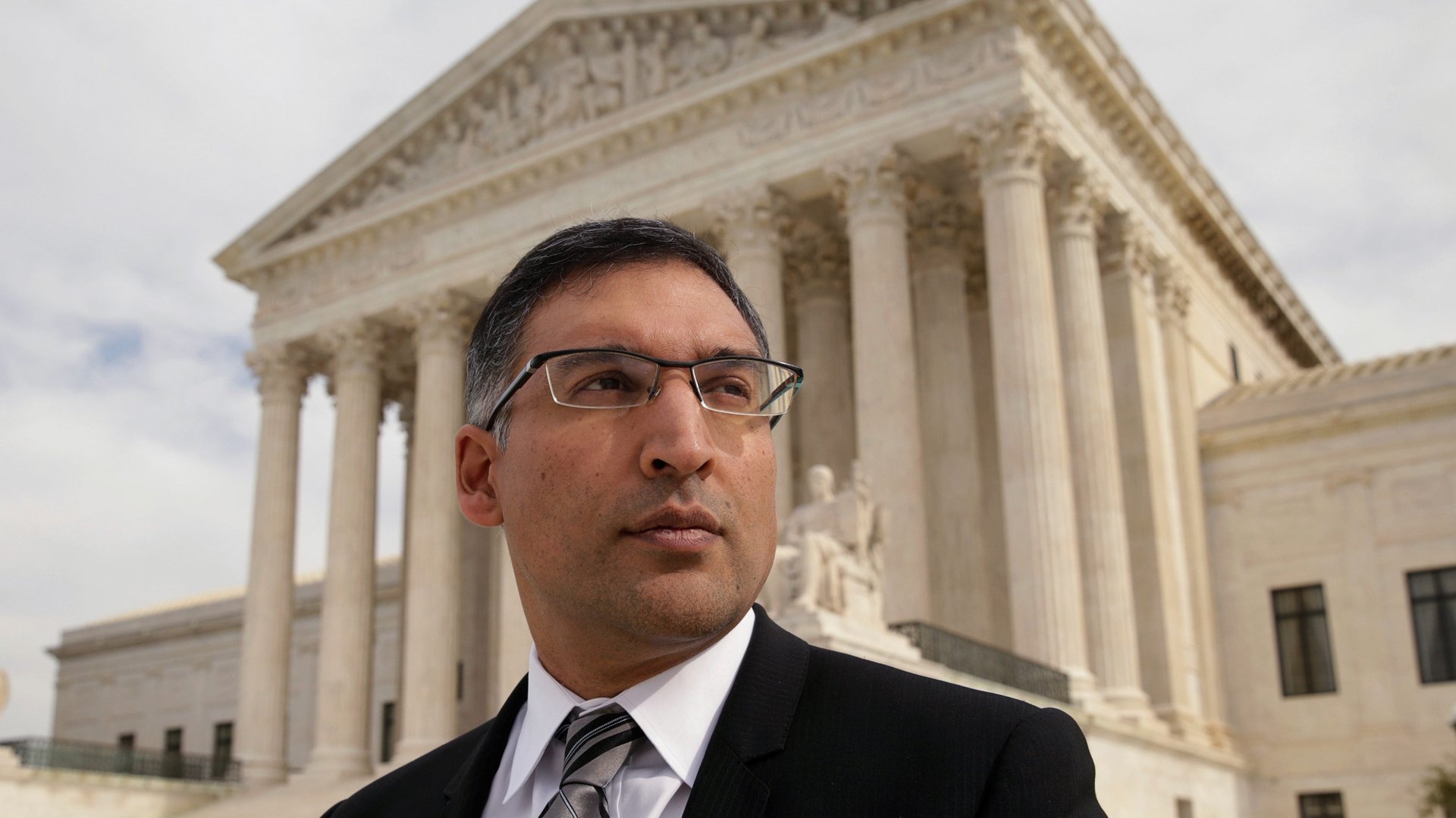Trump just handed the lawyers opposing his travel ban a big gift
US Department of Justice lawyers have spent the past four months arguing that president Donald Trump is not trying to discriminate against Muslims with his executive order barring citizens of several majority-Muslim countries. He just undermined their argument in four tweets.


US Department of Justice lawyers have spent the past four months arguing that president Donald Trump is not trying to discriminate against Muslims with his executive order barring citizens of several majority-Muslim countries. He just undermined their argument in four tweets.
In a string of tweets Monday (June 5), which appear to have been prompted by the terrorist attacks in London over the weekend, Trump vented his frustration with several court rulings that have blocked his executive order on grounds that it’s religiously motivated. But in doing so, he may have provided more fuel for the judges’ findings.
Indeed, one of lawyers currently fighting the Justice Department in court, Neal Katyal, essentially thanked Trump for the tweets.
Katyal, who is representing the state of Hawaii in its case against Trump’s ban, declined to comment on how Trump’s recent Twitter utterances will help make his case, but here are a few ways in which they might.
TRAVEL BAN!
In his first tweet, Trump ignored the careful messaging of his own staff, which has repeatedly denied that the executive order is a “travel ban.” Trump, however, called the order a travel ban in capital letters.
Lawyers from the Justice Department (DOJ) had been avoiding the ban rhetoric, referring to the policy as the Executive Order or the Order in briefs. Meanwhile press secretary Sean Spicer and Homeland Security secretary John Kelly have insisted that the term “travel ban” misrepresents what the order seeks to achieve (according to them, it’s a pause to review the US’s vetting system).
Lawyers opposing the executive action have attempted to link it with Trump’s anti-Islam comments on the campaign trail, including the promise to impose a Muslim ban. They say these comments prove that the true intention of the order is to religiously discriminate against Muslims in violation of the Constitution.
Trump’s latest tweets only reinforce the idea that he believes it is in fact a ban.
“Politically correct” ban
Trump’s policy has been rejected by the circuit courts twice, the second time despite revisions in the order meant to address concerns about religious discrimination. In another tweet sent today, Trump stated that the second order is a watered down version of the first one, implying it was meant to placate the courts, not change its intent.
While Trump does not mention religion in this tweet explicitly, it could be argued that describing the second order as “politically correct” refers to the fact that religion isn’t mentioned in it. After all, that was one of the terms removed from the original order to ensure that it doesn’t violate the constitution’s religious liberty guarantees. The presidential tweet storm will likely make it harder for DOJ lawyers to insist that the order is not religiously motivated.
Trump’s booming message from the presidential twitter pulpit will also make it harder to argue, as justice department lawyers have, that presidential intent can’t be judged by public statements. Courts look to “the text, legislative history and implementation of the statute,” they said in their petition to the US Supreme Court to review the case. They don’t engage in “judicial psychoanalysis of the drafter’s heart of hearts.”
Judges on the Fourth and Ninth Circuit appeals courts weren’t buying that argument before. How and if the Supreme Court will interpret these claims remains to be seen, but the tweets do seem to indicate that the presidents’ real intent can be gleaned from public messaging, including on Twitter.
Slow and political!
Trump ended his travel ban rant by lambasting the courts.
While the courts are unlikely to publicly react to those insults, such public criticism of the judicial branch won’t do Trump any favors. Importantly, his tweet could make it less likely for the Supreme Court to agree to take it, said former immigration judge Paul Wickham Schmidt in an email newsletter.
In another tweet, Katyal predicted the “inevitable cover-my-tweet posts” that DOJ officials would force Trump to send out. So far, though, they haven’t materialized.
The Supreme Court has given the opposition until June 12 to respond to Trump’s petition for appeal. It’s possible he’ll provide them with even more fodder before the deadline arrives.